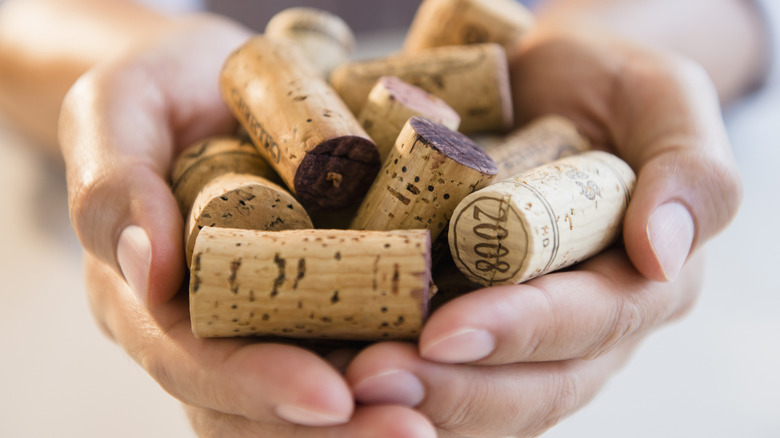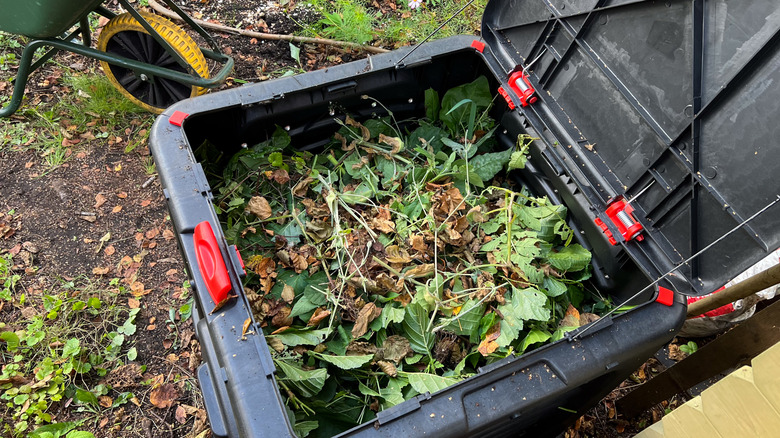Why You Should Start Adding Leftover Wine Corks To Your Compost Pile
Composting transforms everyday kitchen scraps into nutrient-rich soil amendment for your garden. What about those not-so-obvious kitchen scraps? Instead of letting leftover wine corks haphazardly collect around your kitchen, give them a practical purpose as well: Use them as valuable additions to your compost pile. Genuine wine corks break down slowly and help strengthen the overall ecosystem when making your own DIY compost. Unlike synthetic plastic corks, which should never be composted, real cork is biodegradable, antimicrobial, and helps aerate compost as it decomposes. The porous nature of cork creates tiny air pockets in your pile, which helps speed up the breakdown of other organic materials.
Not only that, but cork's natural resistance to moisture helps balance wet compost piles that can sometimes get too soggy. As it breaks down, the cork will release suberin, a compound that improves soil water retention and fights against fungal diseases. This makes cork compost especially useful for plants susceptible to root rot. Before adding the corks to your compost, take time to chop or shred them into smaller pieces. Whole corks can take years to break down entirely, so this preparation helps accelerate the decomposition. You can also soak your corks in warm water for a day before adding them to soften the material. Just make sure you remove any non-compostable materials from the corks, like foil wrappers or plastic caps.
Why wine corks are a gardener's secret weapon
There are plenty of things you should and should not add to your compost, and wine corks offer some unique properties that set them apart from typical ingredients. Cork is around 90% air and filled with millions of air cells, creating ideal conditions for beneficial microbes to thrive. Thanks to the extra aeration and microbes, cork helps encourage earthworm activity, which naturally enhances compost. The honeycomb-like design not only aids decomposition but also helps prevent compaction in your compost, which can happen with too many dense food scraps.
Cork is also one of the compost ingredients you likely already have at home, so no need to go out and buy specialty products. It's naturally fire-retardant, which makes it safer than adding paper products, like cardboard, for composters in high-temperature areas. Its antimicrobial qualities help suppress harmful bacteria while allowing beneficial organisms to grow, which helps reduce odors that often come with kitchen waste composting. The slow decomposition rate helps corks act as compost activators, constantly improving soil structure even after the initial breakdown. For best results, mix your shredded cork throughout the pile rather than layer it; this will ensure the even distribution of its benefits.

